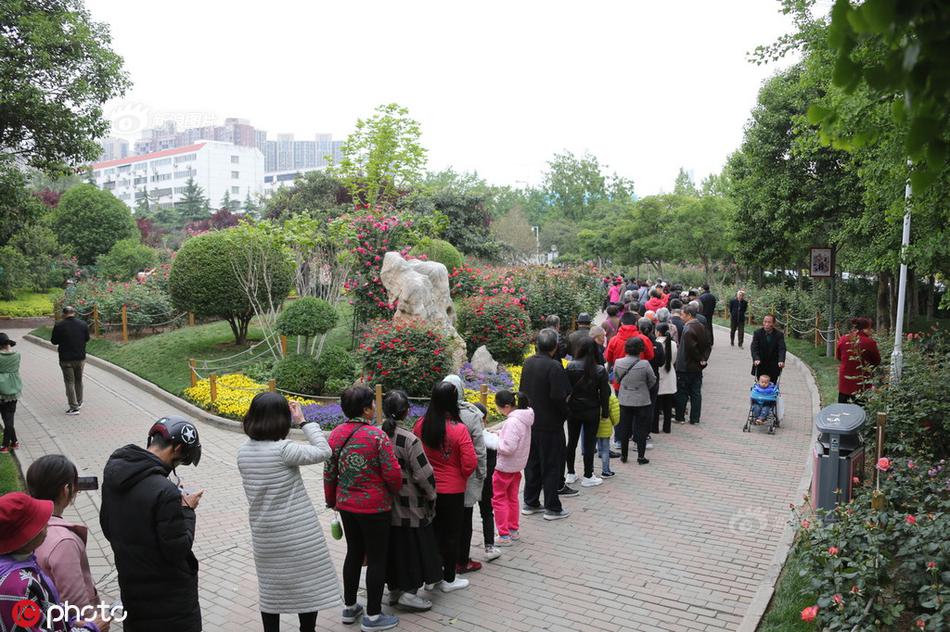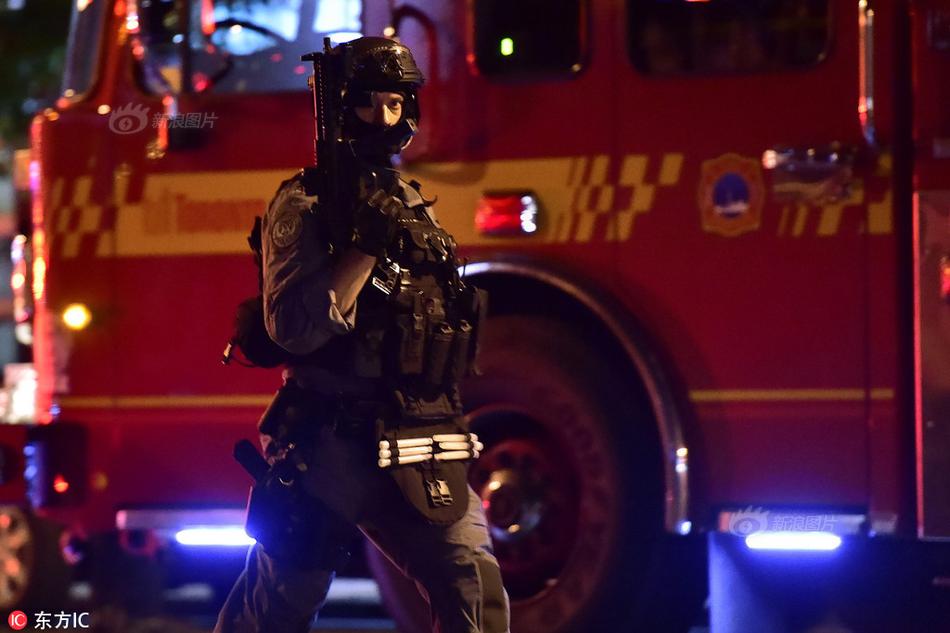Facebook has been under fire for its handling of personal data,Ashley Lopez Archives but what companies around the world can do with that data is even more frightening.
Over the past five years, Terrogence, a surveillance company founded by former Israeli intelligence officers, has been using social networking sites including Facebook and YouTube to build a giant facial-recognition database, Forbes reports.
SEE ALSO: Sheryl Sandberg desperately tries to soften Facebook’s image before Congressional hearingsThe database is part of Terrogence's facial-recognition service Face-Int. It contains the faces of thousands of terrorism suspects, harvested from as many as 35,000 videos and photos.
Terrogence, as well as its parent company Verint, supply intelligence technology to the U.S. government, including the NSA and Navy. Both give the government access to information on terrorist weaponry and tactics that the company gathers through social media. It's entirely possible that the U.S. government could have access to this database.
"Terrogence actively monitors and collects online profiles and facial images of terrorists, criminals and other individuals believed to pose a threat to aviation security, immigration and national security," the company's website reads. "The Face-Int database houses the profiles of thousands of suspects harvested from such online sources as YouTube, Facebook, and open and closed forums all over the globe."
A company brochure states that Terrogence specializes in "cultivating and operating virtual entities in online spaces, that access social media platforms legitimately and act naturally, gaining trust, forming connections, and ultimately collecting valuable intelligence." In other words: it spies on you through fake profiles.
Earlier this month, Verint launched an additional facial-recognition product called FaceDetect, which not only identifies individuals, but also "allows operators to instantaneously add suspects to watch lists."
But there's more to Terrogence than meets the eye. A former Terrogence staffer claimed on her LinkedIn profile to have been involved in investigations of "political and social groups" via social media as well. That means that Terrogence's research may not be limited to terrorism-related intelligence -- it may be looking at you, too.
SEE ALSO: Mark Zuckerberg's Facebook testimony turned into a lesson on how the internet worksSo, should we run for our lives?
Not necessarily. A comprehensive facial recognition database could certainly help the U.S. government keep citizens safe. It could, for example, help authorities identify suspects, detect terrorists in disguise, or track down missing persons more efficiently and accurately. We recently saw something similar built in China.
Still, Terrogence should also serve as a reminder to all of us. We may have caught Cambridge Analytica, but we shouldn't forget that countless more organizations are out there taking advantage of Facebook's wealth of data. Even as the social network tightens up restrictions, it's important to be careful.
Topics Cybersecurity Facebook Facial Recognition
(Editor: {typename type="name"/})
 Best Apple Pencil Pro deal: Save $30 at Best Buy
Best Apple Pencil Pro deal: Save $30 at Best Buy
 Samsung's new tablet comes with the Note7's awesome GIF maker
Samsung's new tablet comes with the Note7's awesome GIF maker
 'The Walking Dead' premiere broke a 2016 Twitter record
'The Walking Dead' premiere broke a 2016 Twitter record
 Xiongmai recalls security cameras used in Dyn attack
Xiongmai recalls security cameras used in Dyn attack
 Best Apple iPad Mini deal: Save $100 at Best Buy
Best Apple iPad Mini deal: Save $100 at Best Buy
Will Oracle take over TikTok? Trump says he'll make a decision in 30 days
 TikTok has less than 75 daysbefore facing another ban after President Donald Trump signed an executi
...[Details]
TikTok has less than 75 daysbefore facing another ban after President Donald Trump signed an executi
...[Details]
The 'Doctor Strange' reviews are in, and they are magically delicious
 LOS ANGELES -- Critics who were the first to write about Doctor Strange found a lot to agree on: It
...[Details]
LOS ANGELES -- Critics who were the first to write about Doctor Strange found a lot to agree on: It
...[Details]
Walking Dead Season 7: Now we know who dies, what next?
 This post contains spoilers for The Walking Dead Season 7 premiere, titled "The Day Will Come When Y
...[Details]
This post contains spoilers for The Walking Dead Season 7 premiere, titled "The Day Will Come When Y
...[Details]
Postcard delivered 50 years late reunites old school buddies
 Never before has the adage "better late than never" held more truth than when a man checked his mail
...[Details]
Never before has the adage "better late than never" held more truth than when a man checked his mail
...[Details]
Blockchain Explained: How It Works, Who Cares and What Its Future May Hold
Facebook renews efforts to fight bullying with Safety Center relaunch
 It just got a little safer to be a Facebook user, no matter where you are in the world.A relaunch of
...[Details]
It just got a little safer to be a Facebook user, no matter where you are in the world.A relaunch of
...[Details]
Tyler Perry and Tom Cruise win big at the box office
 Tyler Perry's Boo! A Madea Halloweenand the Tom Cruise-led sequel Jack Reacher: Never Go Backare the
...[Details]
Tyler Perry's Boo! A Madea Halloweenand the Tom Cruise-led sequel Jack Reacher: Never Go Backare the
...[Details]
More money, more content: Netflix announces plans to raise millions
 LOS ANGELES -- Netflix is about to pour even more money into its original content.The streaming gian
...[Details]
LOS ANGELES -- Netflix is about to pour even more money into its original content.The streaming gian
...[Details]
Amazon CEO tries to sell kids on working on the moon
 Despite all the innovations around us, kids still need as much encouragement as possible to become t
...[Details]
Despite all the innovations around us, kids still need as much encouragement as possible to become t
...[Details]
30 songs Drake could sing now that he's 30
 Can you feel it? The change in the wind, circulating from the 6 and spreading across the United Stat
...[Details]
Can you feel it? The change in the wind, circulating from the 6 and spreading across the United Stat
...[Details]
In Paris Agreement speech, Trump never acknowledged the reality of global warming

Watch in awe as a giant huntsman spider carries off with a mouse

接受PR>=1、BR>=1,流量相当,内容相关类链接。